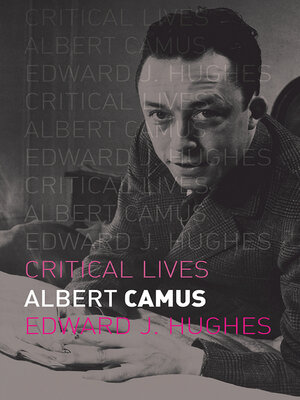
Sign up to save your library
With an OverDrive account, you can save your favorite libraries for at-a-glance information about availability. Find out more about OverDrive accounts.
Find this title in Libby, the library reading app by OverDrive.



Search for a digital library with this title
Title found at these libraries:
| Library Name | Distance |
|---|---|
| Loading... |
Winner of the Franco-British Society Literary Prize 2015
Few figures of twentieth-century French culture carry such an air of romance and intrigue as Albert Camus. Though his life was cut short by a fatal car accident in 1960, when he was just forty-six years old, he packed those years with an incredible amount of experience and accomplishment. This new entry in the Critical Lives series offers a fresh look at Camus' life and work, from his best-selling novels like The Stranger to his complicated political engagement in a postwar world of intensifying ideological conflict. Edward Hughes offers a particularly nuanced exploration of Camus' relationship to his native Algeria—a connection whose strength would be tested in the 1950s as France's conflict with the anticolonial movement there became increasingly violent and untenable.
Ultimately, the picture Hughes offers is of a man whose commitment to ideas and truth reigned supreme, whether in his fiction, journalism, or political activity, a commitment that has led the man who disclaimed leadership—"I do not guide anyone," he once pleaded—to nonetheless be seen as a powerful figure and ethical force.
Few figures of twentieth-century French culture carry such an air of romance and intrigue as Albert Camus. Though his life was cut short by a fatal car accident in 1960, when he was just forty-six years old, he packed those years with an incredible amount of experience and accomplishment. This new entry in the Critical Lives series offers a fresh look at Camus' life and work, from his best-selling novels like The Stranger to his complicated political engagement in a postwar world of intensifying ideological conflict. Edward Hughes offers a particularly nuanced exploration of Camus' relationship to his native Algeria—a connection whose strength would be tested in the 1950s as France's conflict with the anticolonial movement there became increasingly violent and untenable.
Ultimately, the picture Hughes offers is of a man whose commitment to ideas and truth reigned supreme, whether in his fiction, journalism, or political activity, a commitment that has led the man who disclaimed leadership—"I do not guide anyone," he once pleaded—to nonetheless be seen as a powerful figure and ethical force.







